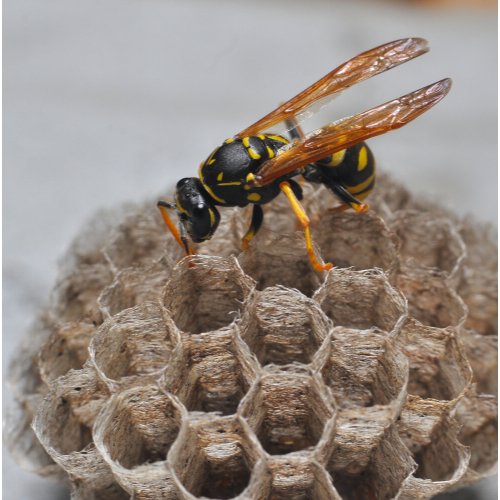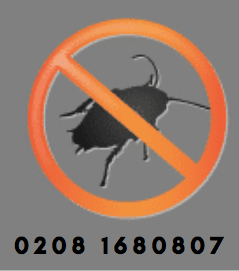Dependable Wasp Control Services in Havering: Safeguarding Your Residence and Business from Wasp Infestations
Wasps can be a common pest problem in Havering, especially during the summer months. These insects can be aggressive and pose a threat to humans, particularly when they feel threatened or are defending their nests. A wasp sting can be painful and, in some cases, may cause an allergic reaction that requires medical attention.
If you’re dealing with a wasp infestation in Havering, it’s crucial to take prompt action to prevent the problem from escalating. Havering Pest Control offers professional and effective wasp control services to help you eliminate wasps and prevent their return.

Our team of experienced technicians is trained to identify different wasp species and locate their nests. We employ a range of safe and effective methods to eliminate wasp infestations, including insecticide sprays, dusts, and baits. Throughout the treatment process, we prioritize the safety of you, your family, and your pets.
In addition to eradicating existing wasp infestations, we also provide preventive measures to help you avoid future infestations. Our team can offer advice on how to prevent wasps from entering your property, including tips on sealing entry points, covering food and drinks, and removing sources of standing water.
At Havering Pest Control, we are committed to providing our customers with safe, effective, and affordable wasp control services. We understand the importance of keeping your home or business wasp-free, and we are here to help. Contact us today to schedule a consultation and learn more about how we can assist you with wasp control in Havering.
Contact us for wasp nest removal in Havering that is safe and reliable. After we treat the nest, all wasps will be eliminated within 24 hours.
Warning: Do Not Approach a Wasp Nest Yourself
Approaching a wasp nest yourself can be dangerous and should be avoided. Wasps are highly territorial insects and will aggressively defend their nests if they feel threatened. Getting too close to a wasp nest can trigger an attack, resulting in painful stings and, in some cases, life-threatening situations, especially for individuals allergic to wasp venom.
One of the greatest dangers of approaching a wasp nest yourself is the risk of being stung. Wasp stings can be painful and cause swelling, itching, and redness. In severe cases, a wasp sting can lead to a severe allergic reaction known as anaphylaxis, which requires immediate medical attention.
Disturbing a wasp nest can also prompt the wasps to swarm and attack. When wasps feel threatened, they release pheromones that signal others to join in the defense. This can result in a swarm of aggressive wasps that are challenging to escape.
Attempting to remove a wasp nest without professional assistance is hazardous, as it can easily disturb the wasps and provoke more aggressive behavior. Improper nest removal may lead to increased aggression and a higher risk of being stung.
For these reasons, it is highly recommended that you seek professional wasp control services if you have a wasp infestation in your home or business. Professional pest control technicians have the knowledge, experience, and tools necessary to remove wasp nests safely and effectively, minimizing the risk of harm to you and others.
In conclusion, approaching a wasp nest yourself is extremely dangerous and should be avoided. If you suspect a wasp infestation on your property, contact a professional wasp control service for safe and effective nest removal.
How to treat a wasp sting
A wasp sting can be painful and uncomfortable, but it is usually not serious and can be treated at home. Here are some steps you can take to treat a wasp sting:
Remove the stinger: If the wasp left a stinger in your skin, remove it as soon as possible to prevent more venom from entering your body. Use a credit card or a similar object to scrape it off the skin.
Clean the area: Wash the affected area with soap and water to prevent infection.
Apply a cold compress: Apply a cold compress, such as a bag of ice or a cold pack, to the sting for 10-20 minutes at a time to reduce swelling and pain.
Take pain relievers: Over-the-counter pain relievers such as ibuprofen or acetaminophen can help reduce pain and inflammation.
Apply a topical cream: You can also apply a topical cream or ointment, such as hydrocortisone cream or calamine lotion, to the affected area to reduce itching and swelling. This one is perfect for Infants
Watch for signs of an allergic reaction: In some cases, a wasp sting can cause a severe allergic reaction known as anaphylaxis. Watch for signs such as difficulty breathing, swelling of the face or throat, rapid heartbeat, or dizziness. If you experience any of these symptoms, seek medical attention immediately.
If you have a history of severe allergic reactions to insect stings, talk to your doctor about carrying an epinephrine auto-injector, such as an EpiPen, with you at all times.
In conclusion, treating a wasp sting at home involves removing the stinger, cleaning the area, applying a cold compress, taking pain relievers, and watching for signs of an allergic reaction. If you have a history of severe allergic reactions, it is important to seek medical attention immediately.
Frequently asked questions about wasp control in Havering
Q: How do I know if I have a wasp infestation? A: Signs of a wasp infestation include seeing an unusually high number of wasps around your property, spotting a nest, or noticing wasp activity in and around your home.
Q: Are wasps dangerous? A: Wasps can be dangerous, especially if you are allergic to their stings. Wasps will also defend their nests aggressively if they feel threatened.
Q: Can I remove a wasp nest myself? A: It is not recommended to remove a wasp nest yourself, as it can be dangerous and lead to more aggressive behavior from the wasps. It is best to contact a professional wasp control service.
Q: What methods are used for wasp control? A: Wasp control methods may include insecticide sprays, dusts, or baits, as well as other targeted techniques designed to eliminate wasps and their nests.
Q: How long does it take to get rid of a wasp infestation? A: The length of time it takes to get rid of a wasp infestation depends on the severity of the problem and the methods used for treatment.
Q: What can I do to prevent a wasp infestation? A: Preventative measures for wasps include sealing entry points to your property, removing sources of standing water, and keeping food and drinks covered when outside.
Q: How do I know if I am allergic to wasp stings? A: If you are allergic to wasp stings, you may experience symptoms such as swelling, difficulty breathing, rapid heartbeat, or dizziness. It is important to seek medical attention immediately if you experience these symptoms.
Q: How can Havering Pest Control help with wasp control? A: Havering Pest Control provides professional and effective wasp control services, including the identification of the species of wasp, the location of their nests, and the safe and effective removal of the infestation.
Q: Are the chemicals used for wasp control safe? A: Yes, the chemicals used for wasp control are generally safe for humans and pets when applied correctly and in accordance with label instructions.
Q: Can wasps return after treatment? A: While professional wasp control services are highly effective, there is always a risk of re-infestation if proper preventative measures are not taken.

